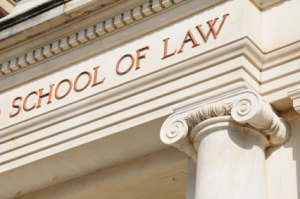Should Law Schools be Teaching the Technology of Law?
 Law schools do a great job of teaching the law of technology – but when it comes to the technology of law, not so much.
Law schools do a great job of teaching the law of technology – but when it comes to the technology of law, not so much.
The former refers to traditional courses in technology like intellectual property, contracts, cyber-ethics, defamation and software transactions. Law schools have been teaching this stuff for years.
But instruction on using technology to practice law is less common.
Some schools have tried. Harvard and Stanford, to name a pair, made a splash when they launched cutting-edge classes on artificial intelligence (AI) and computer applications. Both quietly shelved these offerings after several semesters.
Others offer coursework here and there. But few schools are making a concerted effort to train students on how technology impacts the practice of law.
ABA Technology Education Survey
The proof is found in a recent nationwide survey. In 2013 the ABA sent a questionnaire to the academic deans at all 203 accredited U.S. law schools asking how they are teaching the technology of law. The response was, well, underwhelming.
Only 32 law schools – or 16 percent – even bothered to return the survey. The rest presumably either lacked the time or had nothing to report.
The good news is that the responding schools are doing amazing things. Some have established centers dedicated to the technology of law. Others teach specialized classes in practice management. Three offer concentrations, certificates or joint degrees.
From the ABA report:
Much laudable innovation is occurring in related areas like entrepreneurship, financial skills, marketing and project management. There’s a growing recognition that students need to be practice-ready. And one must acknowledge that legal technology is just one of many subjects proponents are clamoring for schools to include in already-crowded curricula. Still, in a time when all aspects of society and business are being transformed by increasingly intelligent technology, one would think law schools could find room to focus on how the legal system and the practice of law are being transformed by innovative uses of technology.
6 Points of Academic Light
- Michigan State University’s Reinvent Law Laboratory. Created in 2012, the Reinvent Lab brings together the best ideas in law, technology and design. The lab is designed to be a disruptor. Which means anything goes, from smartphones to Snapchat. Old, traditional methods of delivering legal services are trotted out, examined and discarded if no longer viable. New tools are developed and honed. The project has been so successful that the founding professors share their work in conferences around the world.
- Chicago–Kent College of Law. For years, the Center for Access to Justice & Technology has been breaking new ground. The center partners with the Computer-Assisted Legal Instruction (CALI) group for online education on Topics in Digital Law Practice. It also spearheads the A2J Clinic Project, financed by the federal Legal Services Corporation, to train students in document automation. The A2J Clinic Project has launched initiatives at the University of North Carolina and other schools.
- Suffolk University School of Law. Started in 2013, Suffolk’s Institute on Law Practice Technology offers “hackathons” where people meet for collaborative computer programming, as well as Google Glass classroom training and tech externships to prepare students for the brave new digital world. Students can opt for a concentrated curriculum in Legal Technology and Innovation.
- University of Pittsburgh School of Law. The Innovation Practice Institute teaches lawyers to be innovators through hands-on mentoring and community partnerships.
- Florida Coastal School of Law. The Center for Law Practice Technology offers distance learning in law practice technology. Course offerings include Law Practice Technology and Management, Document Automation Applications, Legal Expert Systems, Social Media in Law Practice, Training Lawyers as Entrepreneurs, Legal Project Management, Legal Process Re-Design, eDiscovery Management, Access to Justice and Legal Technology and Ethics of Practicing Law in a Digital World.
- Columbia Law School. The Lawyering in the Digital Age Clinic is not just a class, it’s a journey. The program involves working with clients and collaborating on projects with public interest legal organizations and prominent jurists.
What’s your view of technology and the law? Is this something law schools should do more of? How has tech training improved your legal skills?
Source: American Bar Association, Richard Grant and Marc Lauritsen http://www.americanbar.org/publications/law_practice_magazine/2014/july-august/teaching-the-technology-of-practice-the-10-top-schools.html
Jay Reeves a/k/a The Risk Man has practiced law in North Carolina and South Carolina. Formerly he was Legal Editor at Lawyers Weekly and Risk Manager at Lawyers Mutual. Contact him at 919-619-2441 or jay.reeves@ymail.com.




